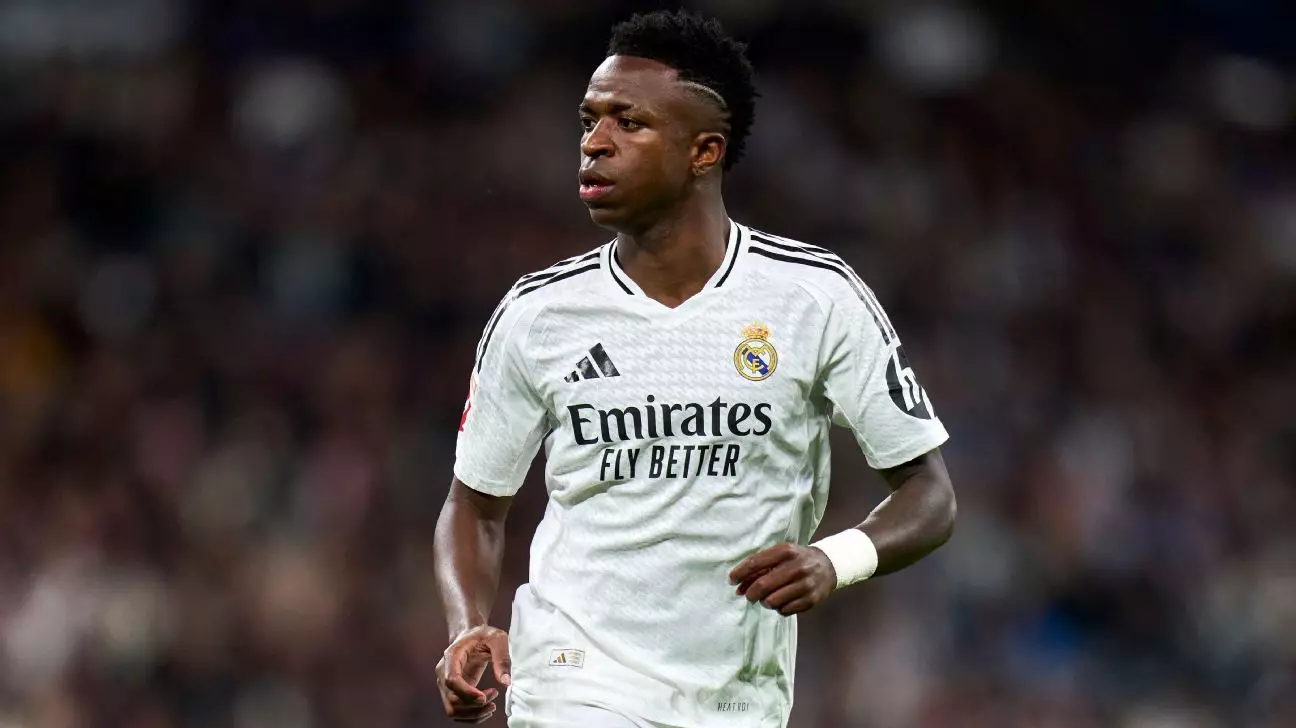The troubling specter of racial abuse in sports reared its head yet again during a Spanish league match involving Real Madrid forward Vinícius Júnior. The incident took place on February 18 at Vallecas stadium, where a minor inflicted emotionally charged and racially motivated insults directed at the Brazilian player during a 1-1 draw against Rayo Vallecano. Such occurrences are not merely sideline irritations; they encapsulate a deeper societal malaise regarding racism, especially within the framework of sports that should celebrate unity and competition.
In the aftermath, LaLiga took a commendable step by identifying and reporting the young perpetrator, who, due to his minor status, could not face conventional legal consequences. Instead, an out-of-court settlement was reached. This included a formal written apology from the offender, the completion of 40 hours of socio-educational activities, and a one-year ban from attending any official football events. These penalties were further compounded by financial repercussions imposed by the State Commission against Violence, Racism, Xenophobia, and Intolerance in Sport.
Real Madrid expressed satisfaction with the measures taken against the offender, which are part of their broader commitment to combatting racism. The club noted that since June, there have been multiple legal proceedings aimed at holding accountable those guilty of similar racist behaviors directed at its players. Their active role in acting as a private prosecutor signals a firm stand against prejudice and reflects a necessary evolution in how sports institutions approach and counteract racism in the sporting community.
Their public statement reinforced their dedication to safeguarding the fundamental values of sport, and their intent to eradicate racial abuse. This stance is vital not only for the players but also for fans who look to the club as a model for ethical leadership in football.
Vinícius Júnior himself has become a prominent figure in the fight against racism in sports. Despite the personal anguish he has endured since moving to Spain in 2018, his resilience is evident, and he has not shied away from discussing the emotional toll of these experiences. His acknowledgment of suffering from the repeated racial abuse resonates with many who face similar indignities, which makes his advocacy even more pivotal.
The broader framework for addressing racism in Spanish football has, in some instances, shown progress, as noted by recent legal actions against fans engaging in racially abusive behavior. For instance, three Valencia fans received prison sentences for their atrocious conduct, representing a critical first step in legal recourse against such behavior. Furthermore, the activities of LaLiga and the Royal Spanish Football Federation in combatting racism signify an institutional commitment to fostering an equitable sporting environment.
While the measures taken to address the abuse endured by Vinícius Júnior are encouraging, they are also indicative of a much larger battle against racism entrenched in sports and society. The combination of educational initiatives, legal repercussions, and vocal advocacy from affected players like Vinícius is essential in moving toward a more inclusive football culture. The hope is that future generations can enjoy the game without the specter of racism overshadowing their passion for sport, fostering an environment that truly celebrates international diversity and unity.

